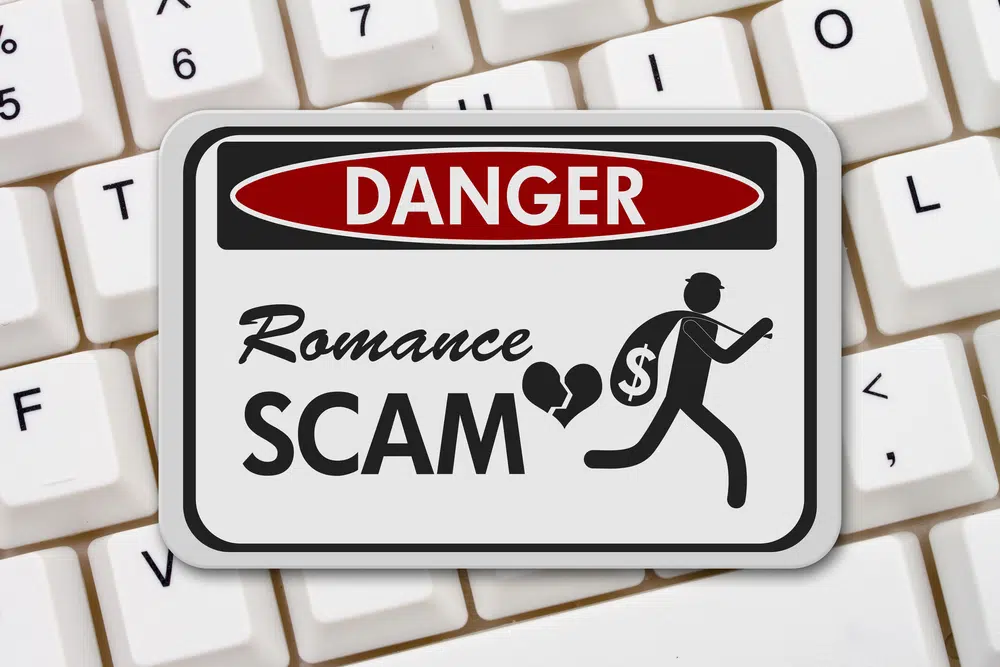2019 Romance Scam Statistics Exploit the Damage Finding False Love Online Can Do
Home Help Center 2019 Romance Scam Statistics Exploit the Damage Finding False Love Online Can Do

In 2019, romance scams led to losses of over $200 million. While these scams may seem easy to avoid, scammers go out of their way to take advantage of you.
All internet scams have the potential to be cruel. After all, they are designed to trick you into handing over your money, your identity or both. However, perhaps one of the most heart-wrenching forms of online scam is the romance scam. Not only does the victim lose their money—and even potentially end up in jail—but they lose what they believed was a real chance at finding lasting love.
Romance scams occur when someone poses as a possible love interest. They reach out to you on social media, on dating apps and websites, via text message or email or through any other means. The resulting conversation is fun and interesting, and the sheer amount of personal attention can lift anyone’s spirits. Before long, you find yourself looking forward to the numerous messages this person sends each day. It does not take long before the pre-packaged lines start to flow:
- “I have never felt like this with anyone I have chatted with before.”
- “I know we just started talking, but I think I’m falling in love with you.”
- “I hope this is not too forward, but I could really see us spending the rest of our lives together.”
Of course, there is always a major obstacle from this new love interest that makes it hard to chat, speak on the phone or visit in person. Perhaps they work on an offshore oil rig, or they are a deep-sea fisherman out on the water for months at a time. Often, the scenario is that they are a U.S. soldier who has been deployed to Afghanistan. The job may change, but the excuse is the same.
Before too long, the ploy begins:
- “I am stuck here on an oil rig and my mom—who adores you already and is excited about meeting you soon—needs medicine. The money is in my account, but the bank has frozen my account while I am away. If only there was someone who could send her money so she does not end up back in the hospital.”
- “I am away on the boat and my son at university—I mean, our son—just had his laptop stolen. He is going to fail his classes and lose his scholarship.”
What’s worse, is the victim’s response to the ploy will determine the future of the relationship. Sending money right away will earn you more messages, more talk of marriage and a future. Showing even the slightest hesitation can result in being cut off for a while. Once you come to your senses and send the money, then the lovey-dovey talk starts back up.
You would think people would not be taken in so easily, but that is not true. In fact, despite the fact that romance scams have been around for years, 2019 romance scam statistics show Americans reported losses of over $201 million in 2019 to romance scams. Those romance scam statistics are just the reports that were actually made to the Federal Trade Commission (FTC), and does not include the numbers of victims who are still embedded in these scams or were too upset and embarrassed to file a report.
Over the last two years, the money reported lost to romance scams was higher than any other reported scam according to the FTC. The FTC also says 2019 romance scams included more than 25,000 reports filed.
Avoiding a romance scam is much harder than it sounds, and recognizing that you have already been victimized is even harder than that. These scammers are good at what they do and they know exactly what to say to snare their victims. All you can do is adopt an air of caution about talking to people online, look for those red flags about long-distance relationships and far-flung jobs and remember that if anyone asks you for money for any reason, it is probably a scam.
If you believe you are a victim of identity theft, you can call the Identity Theft Resource Center toll free at 888.400.5530 to speak with one of our advisors or live chat with an advisor on our website. They will help you create an action plan for your case while directing you on the next steps you need to take.
For on-the-go identity assistance, check out the free ID Theft Help App from ITRC.
You might also like…
How much information are you putting out there? It’s probably too much. To help you stop sharing Too Much Information, sign up for the In the Loop.
Get ID Theft News
Stay informed with alerts, newsletters, and notifications from the Identity Theft Resource Center

